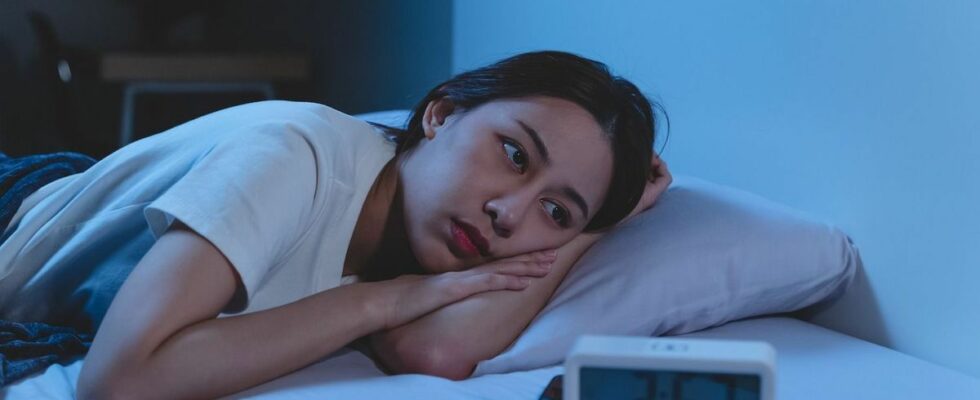Published on
updated on
Reading 2 min.
in collaboration with
Dr Gérald Kierzek (Medical Director of Doctissimo)
Medical validation:
September 18, 2024
Fighting not to sleep. This is the new crazy idea of Internet users who are looking to push their limits. But is it a trend to follow? Not really, explains Dr. Gérald Kierzek, medical director of Doctissimo.
On Youtube, “No-sleep challenge” videos are proliferating. In an attempt to “surpass” themselves, get likes or simply observe how their body reacts, men and women deprive themselves of sleep for hours, even days. But what is the risk of such a practice? We asked Dr. Gérald Kierzek, medical director of Doctissimo, the question.
11 days without sleeping
In August 2024, a young 19-year-old American YouTuber, Norme, had already tried to break the record for the longest period spent without sleeping, set at 453 hours (or almost nineteen days).
He had broadcast his “No-sleep challenge” live from his home in Melbourne, to the astonished eyes of viewers (he had actually fallen into a microsleep several times during the event, but assistants had come to wake him up).
After 250 hours, Internet users began to worry about his health, but the young man replied that “no one ever died trying” said challenge.
Norm had finally fallen into the arms of Morpheus after 11 days without sleeping (265 hours).
“I am amazed that someone would willingly put themselves through such an ordeal, as it is certainly not recommended from a health perspective.“, lamented Dr Vanessa Cropley of the University of Melbourne.There are a lot of inherent risks to this practice, so it’s quite worrying that someone would actually do this, just for an experiment.”
After his “feat”, the exhausted YouTuber slept for 38 hours.
An extremely dangerous challenge, according to Dr. Gérald Kierzek.
“We resist total deprivation of food better and longer than of sleep. Sleep is a vital need“, he recalls.
What happens if you are sleep deprived?
Sleep deprivation”affects physical and mental health and can only be maintained for a limited period of time“, says the medical director of Doctissimo.
Thus, the “No-sleep challenge” would lead to:
- Significant cognitive impairment (decreased alertness, concentration and memory);
- Possible hallucinations and paranoia after 48 hours without sleep;
- Involuntary microsleeps after 24 hours of wakefulness;
- A high risk of serious physical and mental failure beyond 3-4 days;
- An alteration of immune functions;
- An increase in stress and stress hormones;
- Mood disorders (irritability, anxiety);
- An increased risk of accidents.
How long does it take for the inconvenience to occur?
The harmful effects appear after 24 hours without sleep.
“Severe cognitive impairment occurs after 72 hours of wakefulness and beyond 3-4 days the risk of severe impairment increases considerably,” warns Dr. Gérald Kierzek.
Consult a doctor online for your sleep disorders
Can you die from it?
Extreme and prolonged sleep deprivation can lead to widespread failure of vital organs, the doctor warns.
“The body can no longer function properly without the periods of recovery and regeneration that sleep provides. But the human body eventually falls asleep involuntarily before reaching a critical point. Deaths directly attributable to total sleep deprivation are extremely rare outside of experimental conditions or specific pathologies such as fatal familial insomnia“, concludes the medical director of Doctissimo.
